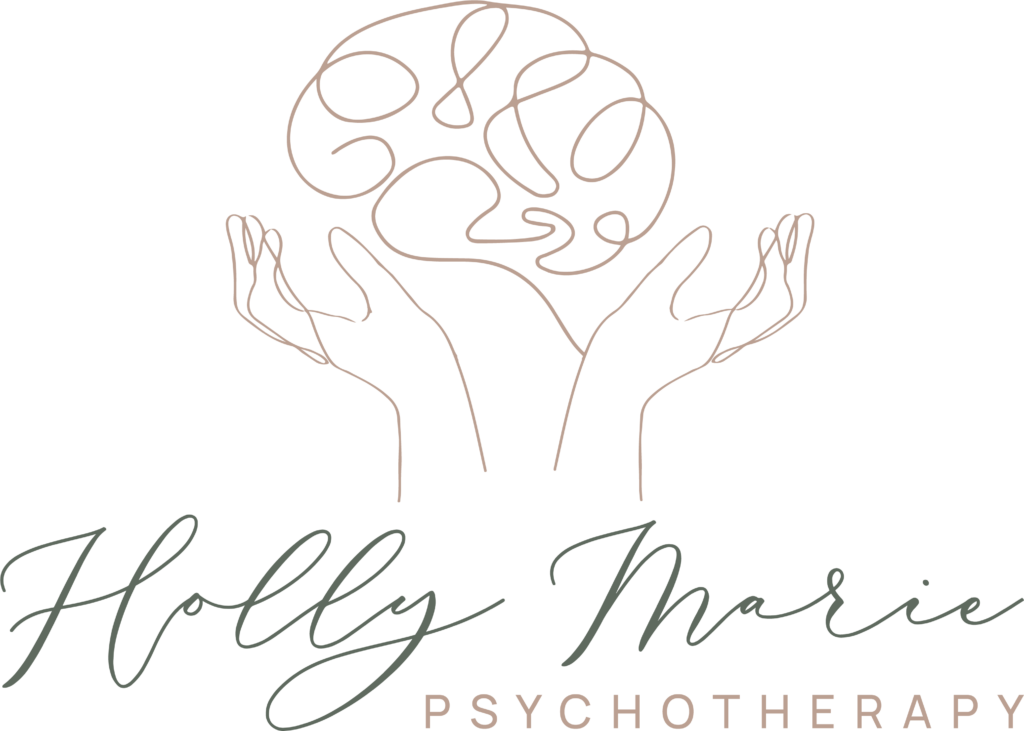Accepting new patients
Therapy FAQs
Difference between Cognitive Behavioural Therapy (CBT)/Psychotherapy vs Counselling
The term ‘psychotherapy’ is often used interchangeably to describe a type of talking therapy that is primarily delivered using CBT. You can learn more about CBT on the BABCP website here (https://babcp.com/What-is-CBT). CBT primarily looks at the impact that our thoughts and behaviours have on the rest of our symptoms when we are struggling with our mental health. When we are experiencing symptoms of anxiety or depression we tend to start thinking or behaving in ways that can unintentionally make us feel worse. For example, we might seek reassurance from others or avoid leaving the house which makes sense initially but can actually make us feel guilt and lead to more time dwelling on negative thoughts. In CBT, the client and therapist work together to try and identify how your symptoms present and the impact these reactions are having in the short and long term. From this, the client and therapist then identify strategies to respond differently and test these different approaches.
It has a wealth of research that supports its effectiveness in treating a wide range of depression and anxiety disorders.
Counselling is an alternative form of therapy that primarily focuses on talking through your difficulties in order to make sense of your symptoms and process the things you are struggling with. It is less structured than CBT and they won’t tell you what to think or do. The aim is to explore the difficulties together in order to make sense of them. It can be very helpful for opening up about difficult experiences but it is not focused on using strategies to change symptoms.
What is Acceptance and Commitment Therapy (ACT)?
ACT is a type of psychotherapy based on the perspective that suffering is a normal part of life and in order to cope with this we need to build psychological flexibility. If we were raised in a home or culture where emotions were seen as ‘bad’ it can be incredibly common to repress our emotions in order to avoid ‘feeling’. However, this can lead to a range of negative consequences, notably depression and anxiety. As part of this approach we would look at how to start ‘feeling’ these emotions to reduce the power that these then hold.
What is Compassion Focused Therapy (CFT)?
CFT is another type of psychotherapy that aims to target feelings of shame or self-criticism. It aims to re frame our thinking and develop compassion for ourself and others as a way of managing negative and unhelpful thinking. It can highlight the mind-body connection and improves awareness of the patterns of shame based behaviour.
Why all the jargon?
Good question! Although CBT tends to be the primary type of psychotherapy, there are several other types that derive from this, such as ACT and CFT. These all frame and treat symptoms in slightly different ways so it is important that we distinguish between the approaches.
My aim in sessions is to limit the ‘therapy jargon’ and simplify both the strategies and process. I am very conscious that at the point of seeking therapy our minds can often feel like chaos. My role is to cut through the technical knowledge and apply the most effective approach and strategies to your situation. Therefore, if I feel that a different therapy approach is needed one session to the next then I will always share my thinking with you and ask for your opinion so that we can decide the best approach together. However, if you feel confused and simply want me to share my thoughts then I can accommodate this too!
What does a typical session look like/how does it work?
A typical session will always involve me checking in with you at the beginning of each appointment. This is to give me an idea of your current symptoms and any changes since starting therapy. It can also highlight if there are any factors that we need to take into account when setting tasks or booking future appointments, such as changing the time of appointments or breaking the tasks down in to smaller chunks.
We then make a plan for the session together and usually this relates to your initial therapy goals to ensure that we are working towards achieving the changes you want to see. We review the task from the previous session and use this to guide where we go from there. Sometimes, we complete the task again together (to reinforce learning and highlight any patterns in our thoughts or behaviours that we might have missed) or we build on this by setting up an experiment to ‘test’ the theories we have about what might be maintaining your symptoms. We then set a new task for the following week. Eventually we identify solutions and work on how to maintain this progress once therapy comes to an end.
I will always share my rationale and reasoning to help you decide on the next steps.
Depending on the type of therapy we are using (such as CBT, ACT or CFT) each session will look a little different.
What do I need to do for therapy to work?
To get the most out of therapy, you need to commit to attending, even on the days that feel tough. The difficult days are when the most learning occurs as we can use these examples to make sense of how you are feeling in order to find a path through the ‘fog’. I will always adapt the sessions if needed if our initial plan for that appointment feels too difficult.
In order to reinforce the learning from our sessions it is necessary to practice the strategies that we identified in the session. This is to both test the theories that we highlighted and to build habits in using these more ‘helpful’ strategies on a regular basis. It is normal to struggle with these, especially at the start of therapy but the more open you can be then the more likely it is that we can tweak the strategies to feel more manageable.
How do I know that the therapy is safe and effective?
I am accredited with the British Association for Behavioural and Cognitive Psychotherapies (BABCP). Therapists that are trained in CBT and related therapies should be accredited with the BABCP in order to ensure that we are delivering safe and effective therapy which follows the evidence base. Therefore, in order to be accredited we have to meet rigorous training requirements which thoroughly check the quality of our practice. We are also required to keep up with recent developments and research, thus ensuring that the therapy we deliver is fully informed. Associated training courses in CBT typically take one year to complete, which involves study, case studies and delivering CBT in practice while being closely supervised. You can read about the BABCP here (https://babcp.com/).
It is important to note that the terms ‘therapist, psychologist, psychotherapist or counsellor’ are not protected terms in the UK, therefore, anyone can claim to deliver therapy but have little to no training! Please make sure that the therapist you see is accredited with a professional body, either the BABCP or BACP (for therapists delivering counselling).
Not only am I accredited with the BABCP I also have thorough training in CBT and other relevant psychology qualifications. Please find my qualifications below:
Training: Cognitive & Behaviour Therapies (IAPT) Pathway
Degree/Diploma: PGCert
Year Graduated: 2019
Year I Began Practice: 2018
Training: Low Intensity Psychological Interventions
Degree/Diploma: PGCert
Year Graduated: 2013
Year I Began Practice: 2012
Training: Psychology
Degree/Diploma: BSc
Year Graduated: 2012
Do I need to book a consultation or can I book straight in for a session?
It is entirely up to you! If you feel it would be helpful to have a brief chat first or get a feel if we could be a good fit then please feel free to contact me to book a free brief consultation. There is no pressure to proceed with a booking following this. If during this or during the session I feel that an alternative approach might be best then I will always let you know.
The first session is always an assessment which involves making a plan for treatment based on a thorough understanding of your symptoms, therefore, I will always discuss my recommendation with you.
How many sessions will I need?
A typical course of CBT generally lasts between 6-12 sessions. Some symptoms, such as trauma, require more sessions (NICE guidelines recommend 16 sessions). However, therapy length is discussed on a case by case basis with some clients requesting more.
Can I see you fortnightly?
Yes, sessions can take place weekly or fortnightly. It is not advised to have gaps longer than two weeks as this can limit progress and interfere in creating new habits, however, some clients have found it beneficial to stagger sessions towards the end of therapy in preparation for this.
What are your fees?
My fees are £100/session. I conduct these via video, telephone or face to face. These are booked with myself over phone or email and paid via bank transfer.
Face to face sessions take place in central Congleton, Cheshire and you can switch between video and face to face depending on your preference.
What is your availability?
I offer sessions Monday- Thursday between 10am-5pm. I currently have a few spaces for new clients.
Can I bring my partner to sessions?
Yes! Clients have sometimes mentioned that their partner does not understand their symptoms, in turn, putting more pressure on them and the relationship. As a result, I have often suggested their partner attends one or two sessions to share our understanding of why they might have developed these symptoms and the factors that have unintentionally maintained these. This can build empathy and support and also encourage them to be a co-therapist, encouraging the client between sessions and further improving progress.
I usually advise we book this once we are least a few sessions in when we have gathered a shared understanding of the development of symptoms (sometimes I refer to this as someone’s ‘story’).
It is important to note that this is not couples counselling- the therapy is solely for the client with the aim of getting their partner involved in order to improve understanding, support and encouragement.
What happens if I need to contact you out hours?
The service offered is appointment only. Therefore, if anything should happen to you in-between sessions which might require immediate support or healthcare, please see the following options:
Emergency or crisis
• Use helpline numbers (see below)
• Contact your GP or dial 111 – NHS Direct Go to the nearest Accident & Emergency hospital department
• Call 999 and ask for an ambulance
Helplines
Samaritans: 0161 236 8000 (local call charges apply) or 116 123 (free to call). Open 24 hours a day. Confidential emotional support by telephone, email, letter and face to face.
Saneline: 0300 304 7000. Open 4.30pm – 10.30pm every day. Emotional support and information.
Campaign Against Living Miserably (CALM): Helpline for men. 0800 58 58 58. 5pm–midnight, 365 days a year.
Domestic abuse: 24-hour National Domestic Violence Freephone Helpline 0808 2000 247
UK Government referral page for vulnerable people: People can self-refer or you can refer them on their behalf. It takes less than a couple of minutes and you will need the persons NHS number.
NHS Bereavement Helpline: 0800 2600 400 and is open from 8am to 8pm.
Questions?
Therapy is deeply personal, there is no such thing as a stupid question and I would much rather you reach out and ask than feel that you have to struggle in silence and not get the support you need!
Please feel free to contact me if there is anything that you would like to clarify.

Address: Congleton, Cheshire, CW12
Telephone: 07768645511
Email: holly@hollymariepsychotherapy.com
